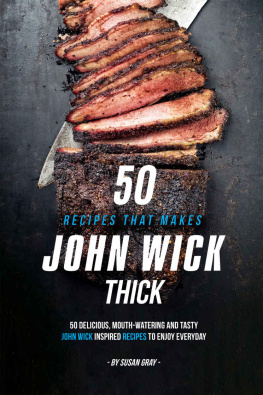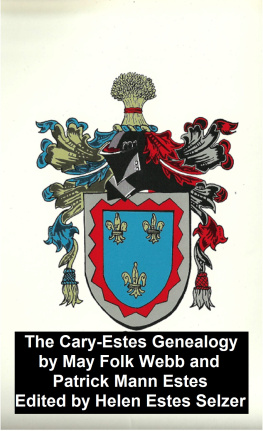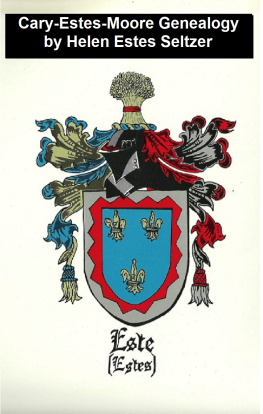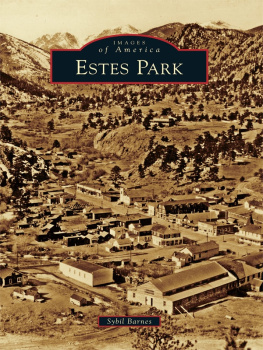Project Gutenberg's Good Things to Eat as Suggested by Rufus, by Rufus EstesThis eBook is for the use of anyone anywhere at no cost and withalmost no restrictions whatsoever. You may copy it, give it away orre-use it under the terms of the Project Gutenberg License includedwith this eBook or online at www.gutenberg.orgTitle: Good Things to Eat as Suggested by Rufus A Collection of Practical Recipes for Preparing Meats, Game, Fowl, Fish, Puddings, Pastries, Etc.Author: Rufus EstesRelease Date: May 22, 2006 [EBook #18435]Language: EnglishCharacter set encoding: ISO-8859-1*** START OF THIS PROJECT GUTENBERG EBOOK GOOD THINGS TO EAT AS ***Produced by Audrey Longhurst, Janet Blenkinship and theOnline Distributed Proofreading Team at http://www.pgdp.net(This file was produced from images generously madeavailable by the Digital & Multimedia Center, MichiganState University Libraries.)
GOOD THINGS TO EAT
AS
SUGGESTED BY RUFUS
A COLLECTION OF PRACTICAL RECIPES FOR
PREPARING MEATS, GAME, FOWL, FISH,
PUDDINGS, PASTRIES, ETC.
BY
RUFUS ESTES
FORMERLY OF THE PULLMAN COMPANY PRIVATE CAR SERVICE, AND PRESENT
CHEF OF THE SUBSIDIARY COMPANIES OF THE UNITED STATES
STEEL CORPORATIONS IN CHICAGO
CHICAGO
PUBLISHED BY THE AUTHOR
1911
Copyrighted 1911
By Rufus Estes, Chicago
FOREWORD
hat the average parent is blind to the faults of its offspring is afact so obvious that in attempting to prove or controvert it time andlogic are both wasted. Ill temper in a child is, alas! too oftenmistaken for an indication of genius; and impudence is sometimesregarded as a sign of precocity. The author, however, has honestlystriven to avoid this common prejudice. This book, the child of hisbrain, and experience, extending over a long period of time and varyingenvironment, he frankly admits is not without its faultsis far fromperfect; but he is satisfied that, notwithstanding its apparentshortcomings, it will serve in a humble way some useful purpose.
The recipes given in the following pages represent the labor of years.Their worth has been demonstrated, not experimentally, but by actualtests, day by day and month by month, under dissimilar, and, in manyinstances, not too favorable conditions.
One of the pleasures in life to the normal man is good eating, and if itbe true that real happiness consists in making others happy, the authorcan at least feel a sense of gratification in the thought that hisattempts to satisfy the cravings of the inner man have not been whollyunappreciated by the many that he has had the pleasure of servingsomeof whom are now his stanchest friends. In fact, it was in response tothe insistence and encouragement of these friends that he embarked inthe rather hazardous undertaking of offering this collection to adiscriminating public.
To snatch from his daily toil a few moments, here and there, in order toarrange with some degree of symmetry, not the delicacies that wouldawaken the jaded appetite of the gourmet, but to prepare an ensemblethat might, with equal grace, adorn the home table or banquet board, hasproven a task of no mean proportions. Encouraged by his friends,however, he persevered and this volume is the results of his effort.
If, when gathered around the festal board, in camp or by fireside, ontrain or ship, "trying out" the recipes, his friends will pause,retrospectively, and with kindly feelings think from whence some of thegood things emanated, the author will feel amply compensated for thecare, the thought, the labor he has expended in the preparation of thebook; and to those friends, individually and collectively, it istherefore dedicated.
SKETCH OF MY LIFE
I was born in Murray County, Tennessee, in 1857, a slave. I was giventhe name of my master, D. J. Estes, who owned my mother's family,consisting of seven boys and two girls, I being the youngest of thefamily.
After the war broke out all the male slaves in the neighborhood formiles around ran off and joined the "Yankees." This left us little folksto bear the burdens. At the age of five I had to carry water from thespring about a quarter of a mile from the house, drive the cows to andfrom the pastures, mind the calves, gather chips, etc.
In 1867 my mother moved to Nashville, Tennessee, my grandmother's home,where I attended one term of school. Two of my brothers were lost in thewar, a fact that wrecked my mother's health somewhat and I thought Icould be of better service to her and prolong her life by getting work.When summer came I got work milking cows for some neighbors, for which Igot two dollars a month. I also carried hot dinners for the laborers inthe fields, for which each one paid me twenty-five cents per month. Allof this, of course, went to my mother. I worked at different placesuntil I was sixteen years old, but long before that time I was takingcare of my mother.
At the age of sixteen I was employed in Nashville by a restaurant-keepernamed Hemphill. I worked there until I was twenty-one years of age. In1881 I came to Chicago and got a position at 77 Clark Street, where Iremained for two years at a salary of ten dollars a week.
In 1883 I entered the Pullman service, my first superintendent being J.P. Mehen. I remained in their service until 1897. During the time I wasin their service some of the most prominent people in the world traveledin the car assigned to me, as I was selected to handle all specialparties. Among the distinguished people who traveled in my care wereStanley, the African explorer; President Cleveland; President Harrison;Adelina Patti, the noted singer of the world at that time; Booth andBarrett; Modjeski and Paderewski. I also had charge of the car forPrincess Eulalie of Spain, when she was the guest of Chicago during theWorld's Fair.
In 1894 I set sail from Vancouver on the Empress of China with Mr. andMrs. Nathan A. Baldwin for Japan, visiting the Cherry Blossom Festivalat Tokio.
In 1897 Mr. Arthur Stillwell, at that time president of the Kansas City,Pittsburg & Gould Railroad, gave me charge of his magnificent $20,000private car. I remained with him seventeen months when the road wentinto the hands of receivers, and the car was sold to John W. Gatessyndicate. However, I had charge of the car under the new managementuntil 1907, since which time I have been employed as chef of thesubsidiary companies of the United States Steel Corporation in Chicago.
HINTS TO KITCHEN MAIDS
It is always necessary to keep your kitchen in the best condition.
BreakfastIf a percolator is used it should first be put intooperation. If the breakfast consists of grapefruit, cereals, etc., yourcereal should be the next article prepared. If there is no diningroommaid, you can then put your diningroom in order. If hot bread is to beserved (including cakes) that is the next thing to be prepared. Your gasrange is of course lighted, and your oven heated. Perhaps you have forbreakfast poached eggs on toast, Deerfoot sausage or boiled ham. One ofthe above, with your other dishes, is enough for a person employedindoors.
When your breakfast gong is sounded put your biscuits, eggs, bread,etc., in the oven so that they may be ready to serve when the familyhave eaten their grapefruit and cereal.
LuncheonThis is the easiest meal of the three to prepare.Yesterday's dinner perhaps consisted of roast turkey, beef or lamb, andthere is some meat left over; then pick out one of my receipts callingfor minced or creamed meats; baked or stuffed potatoes are always nice,or there may be cold potatoes left over that can be mashed, made intocakes and fried.
DinnerFor a roast beef dinner serve vegetable soup as the firstcourse, with a relish of vegetables in season and horseradish orchow-chow pickle, unless you serve salad.
Next page










